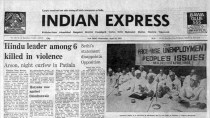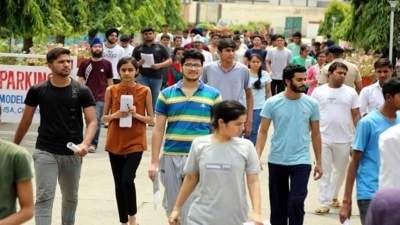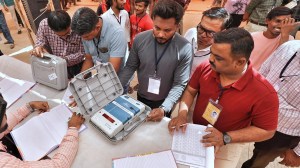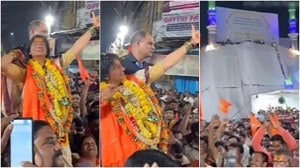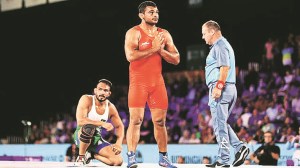- India
- International
B G Verghese: Citizen of a larger world
George Verghese always looked beyond headlines, and borders.
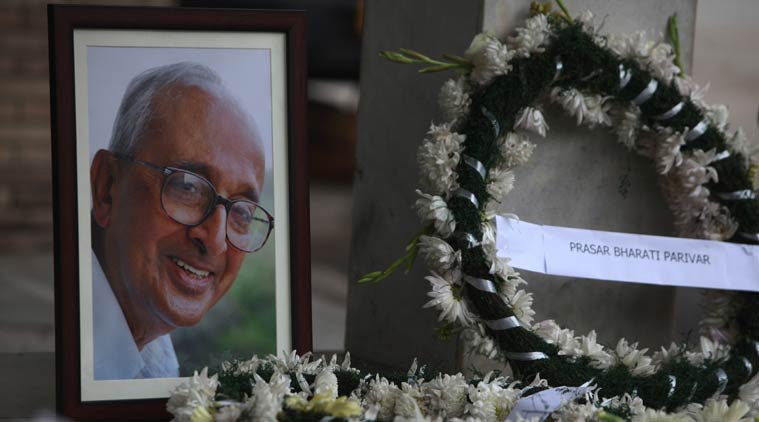 George was all for peace with Pakistan, but without any compromise on terrorism. He wanted enduring plans to deal with South Asia’s endemic problems. (Source: Express Photo By Amit Mehra)
George was all for peace with Pakistan, but without any compromise on terrorism. He wanted enduring plans to deal with South Asia’s endemic problems. (Source: Express Photo By Amit Mehra)
B.G. Verghese, who passed away in New Delhi on Tuesday, always looked beyond borders, and had come to believe that the well-being of the people of India was intrinsically linked with the well-being of its neighbours. Years ago, it was he who first thought and wrote about the “irrelevance of borders”, a phrase now often used in South Asian peace dialogues, although without much success.
George, as he was affectionately called by his friends and colleagues, was a concerned citizen of India, who went on looking ahead into the future, finding ways to bring South Asians together. He worked to remove their mutual suspicions and create a climate in the subcontinent so that peace would prevail. He wrote for, and worked for it, till his last. Essentially, George was a citizen of the subcontinent, who thought beyond concepts such as sovereignty.
One of the most outstanding editors of India, he was working practically till the end, writing columns for various newspapers, questioning settled beliefs, exposing hypocrisies that had come to prevail in public policy. He was also questioning the politics of passion, which, he felt, would unsettle life in India and the subcontinent. He believed in reasoned debate.
In recent private conversations, he sounded worried about the impact of conversions, the imposition of Sanskrit and the growing rise of intolerance across the country. He was sure that such shortcuts to achieve political supremacy would disrupt national unity, which was essential for progress. He believed in the nation’s unity in diversity, and abhorred any attempt to disturb the equilibrium the concept had brought about in the nation.
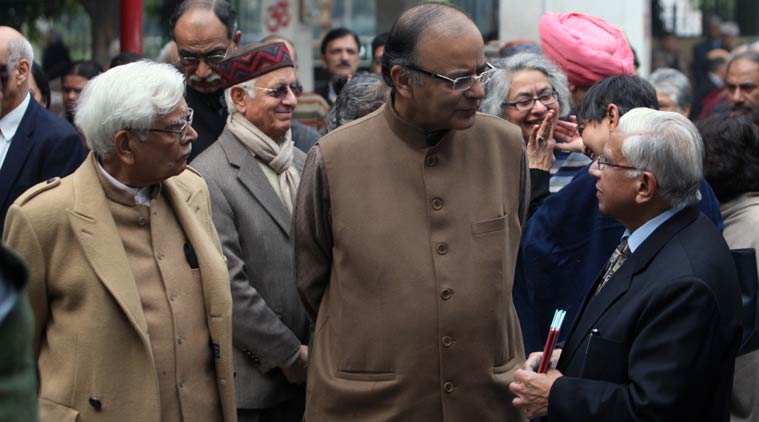 Finance Minister Arun Jaitley and family members during the cremation of BG Verghese at Lodhi Road crematorium in New Delhi on Thursday. (Source: Express Photo By Amit Mehra )
Finance Minister Arun Jaitley and family members during the cremation of BG Verghese at Lodhi Road crematorium in New Delhi on Thursday. (Source: Express Photo By Amit Mehra )
Unlike most other journalists, George always looked beyond the headlines and thought deeply about the problems afflicting India and the subcontinent. As an eminent citizen, he tried to find a solution to the Kashmir dispute. He was for greater autonomy to Jammu and Kashmir as a means to tackle militancy and satisfy the people’s aspirations.

George was all for peace with Pakistan, but without any compromise on terrorism. He wanted enduring plans to deal with South Asia’s endemic problems. He wrote a seminal book, Waters of Hope, arguing that if nothing else, utilising and sharing water from the Himalayan rivers would banish poverty from the region, where one-fifth of humanity lives. He was always busy with citizens’ dialogues involving people from Pakistan, Sri Lanka, Nepal, Bhutan and Bangladesh. The participants, if not the governments, often looked to him for solutions. Governments of the subcontinent found him too futuristic and idealistic. P.N. Haksar once endearingly described him as a boy-scout, who would like to do one good deed a day. He wrote looking into the future. He was worried about India’s Northeast and its alienation from the rest of India. He made dozens of visits to the region and wrote a well-researched book, Northeast Resurgent.
George was of the view that solutions to the problems of the Northeast could be found by opening its borders for trade with Southeast Asia. He actively participated in the Kunming Initiative, which searched for cross-border solutions to political and economic problems. Ahead of his time, he was one of the first to plead for a “Look East” policy.
During his editorship of the Hindustan Times in the 1970s, he adopted a village near Delhi, Chhatera, and sent reporters to write on the changes there, noting every little development that occurred in the life of its residents. Not surprisingly, he came to be known as the father of development journalism in India. George is also remembered for his famous editorial in Hindustan Times, “Kunchenjunga Here We Come”, which questioned Indira Gandhi’s decision to annex Sikkim, then an independent kingdom. Soon after, he lost his job.
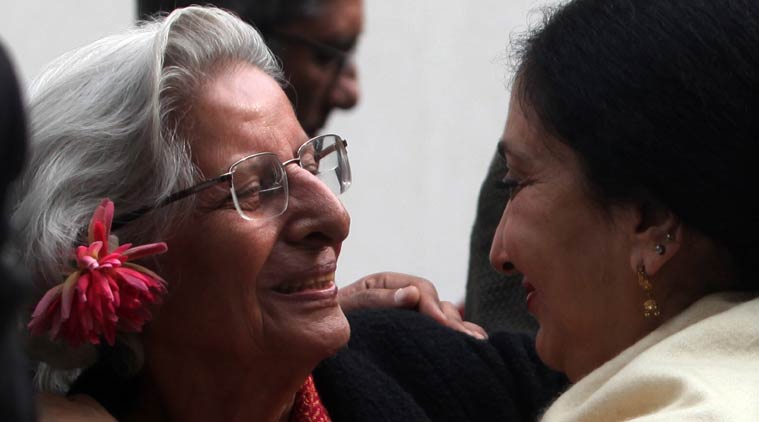 (Left) Verghese’s wife at his funeral. (Source: Express Photo By Amit Mehra )
(Left) Verghese’s wife at his funeral. (Source: Express Photo By Amit Mehra )
George was in the wilderness for some time, but he was never idle. He worked with the Gandhi Peace Foundation and, later, the Centre for Policy Research. He came under the influence of Jayaprakash Narayan and opposed the Emergency. The Janata Party fielded him from Mavelikkara in Kerala, because his ancestral town, Thiruvalla, was part of the constituency. Indira Gandhi lost the north, but the Congress swept the south, including Mavelikkara.
In The Indian Express, where he succeeded eminent editors, including Frank Moraes and S. Mulgaonkar, he turned out to be an unusual editor. In the four years he worked there, he left his imprint. Working under him, I found him endowed with a great vision for India, rather South Asia, and its people, especially its poor, the lonely and the lost.
George always fought for the freedom of the press and was one of the pillars of the struggle against the Defamation Bill. Lately, he had started campaigning against the obnoxious phenomenon of paid news. To George, it was a matter of faith that the integrity of the newspaper be preserved. He was a man of convictions, integrity and character — the hallmarks of a great editor.
By: H K Dua
The writer, a former editor-in-chief of ‘The Indian Express’, is an MP in the Rajya Sabha.
40 Years Ago
EXPRESS OPINION
More Explained
Apr 18: Latest News
- 01
- 02
- 03
- 04
- 05











